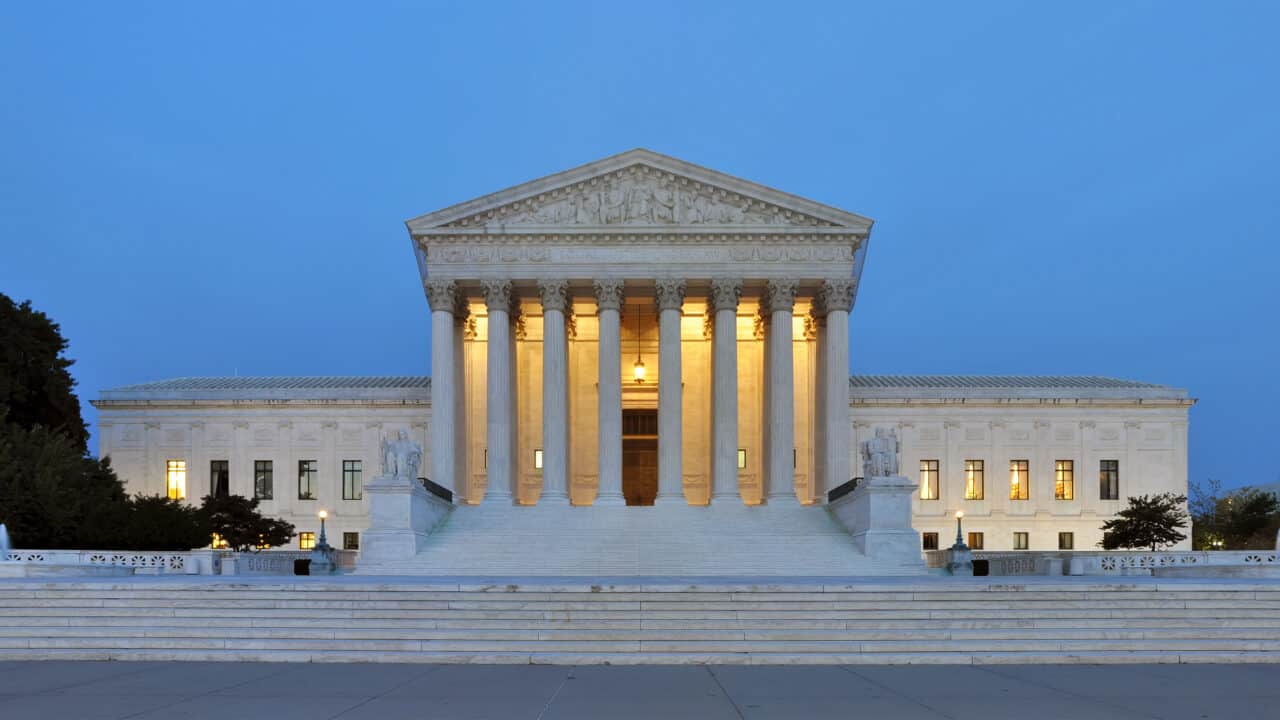 Panorama of United States Supreme Court Building at Dusk by Joe Ravi is licensed under CC-BY-SA 3.0.
Panorama of United States Supreme Court Building at Dusk by Joe Ravi is licensed under CC-BY-SA 3.0.
In the near future, the Supreme Court will make its final decision on the constitutionality of the Biden Administration’s student loan bailout plan. Not only is the plan terrible policy, – with costs estimated at $400B, its vulnerability to fraud, its distortion of market conditions with disastrous results, and much more – it is outright unconstitutional.
“No Money shall be drawn from the Treasury, but in Consequence of Appropriations made by Law” – Article 1, Section 9, Clause 7 of the Constitution
The Constitution clearly and explicitly grants the power of the purse and treasury to Congress. The Biden Administration issued the executive order with no authorization by Congress, waiving debts unilaterally. Secretary of Education Miguel A. Cardona, in a memo arguing debt cancellation’s authority, argues a foundation can be found from the Higher Education Relief Opportunities for Students (HEROES) Act of 2003 – a justification that has been used by The Biden Administration since. The Supreme Court’s decision will be primarily based on whether this nearly two-decade-long statute can be applied to the loan forgiveness plan.
The HEROES Act, the first iteration of which was enacted following the September 11th attacks, allows the Secretary to “waive or modify” federal student loans during time of emergency to those who “are serving on active duty during the emergency, are serving on National Guard duty during the emergency, reside or are employed in a disaster area… or suffered direct economic hardship as a direct result of the emergency”. Which of these categories does the sweepingly broad “Student Loan Debt Relief Plan” tailor to? The Biden Administration’s plan provides loan forgiveness up to $20,000 based solely on income – and, crucially, not on emergency impact as the HEROES Act requires. In fact, college graduates fared best during the pandemic – they were the only demographic to see a statistically significant rise in income from 2020 to 2021.
Additionally, compare the Biden Administration’s use of the HEROES Act to the precedents set before it. As stated in the oral argument of Biden v. Nebraska, previous uses of the Act “maintains the status quo” – delays repayments, pauses repayments, provides other options, etc. The Biden Administration’s plan, in contrast, places many borrowers in a better position than at the beginning of the pandemic – and as a result cannot be justified by the HEROES Act.
Supreme Court precedent agrees; as Justice Antonin Scalia wrote in a 2001 decision, the Supreme Court will not uphold unitary executive powers based on “vague terms or ancillary provisions” – Congress does not hide “elephants in mouseholes”. The Biden Administration is attempting to do exactly this, by attempting to gain broad powers it shouldn’t have by intentionally misinterpreting a dated document.
The Supreme Court is expected to issue a final decision by June 30th. Shutting down this broad overreach of executive power is not only essential for maintaining the system of checks and balances our country relies on, but also to protect the American taxpayer.

